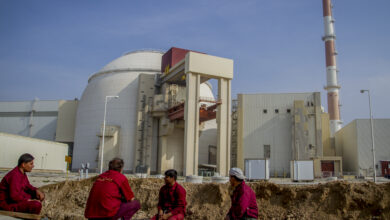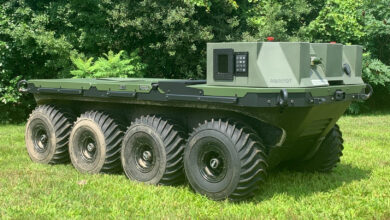US Navy Announces Successful Hypersonic Rocket Motor Test
With these weapons, the military can destroy high-value targets from hundreds to thousands of miles away in a matter of minutes.
The US Navy announced that it has successfully conducted a test of the First Stage Solid Rocket Motor (SRM) as part of its Conventional Prompt Strike (CPS) offensive hypersonic missile development and the army’s Long Range Hypersonic Weapon (LRHW).
Tested by the Navy’s Strategic Systems Programs (SSP), the SRM will be part of a new missile booster and combined with a Common Hypersonic Glide Body (CHGB) to create the long range hypersonic missile. In March last year, the Pentagon successfully tested the CHGB, which flew at hypersonic speed to a designated impact point.
Parts that comprise the CHGB include a conventional warhead, guidance system, cabling, and thermal protection shield. Additionally, the CHGB uses a booster rocket motor to fly above hypersonic speed, jettison the expended rocket booster, and glide to its target. The navy is the lead designer with the army leading production.
“This successful SRM test represents a critical milestone leading up to the next Navy and Army joint flight test, which will take place in the first quarter of Fiscal Year 2022, and ultimately the fielding of the CPS and LRHW weapon systems,” the navy release stated.
The SSP is the office responsible for the development, production, and distribution of the Navy’s Strategic Weapons Systems. The Department of Defense is reportedly working in collaboration with national laboratories, as well as private and academic institutions to deploy hypersonic missile capability in the early-to mid-2020s.
Hypersonic weapons
Hypersonic weapons are highly maneuverable and can fly at speeds faster than Mach 5 (the speed of sound).
With these weapons, the military can destroy high-value targets from hundreds to thousands of miles away in a matter of minutes.
The development of these weapons is one of the Pentagon’s highest priorities. Overall expenditure on hypersonic weapons technology for the period 2015-2024 is estimated so far at $15 billion.












